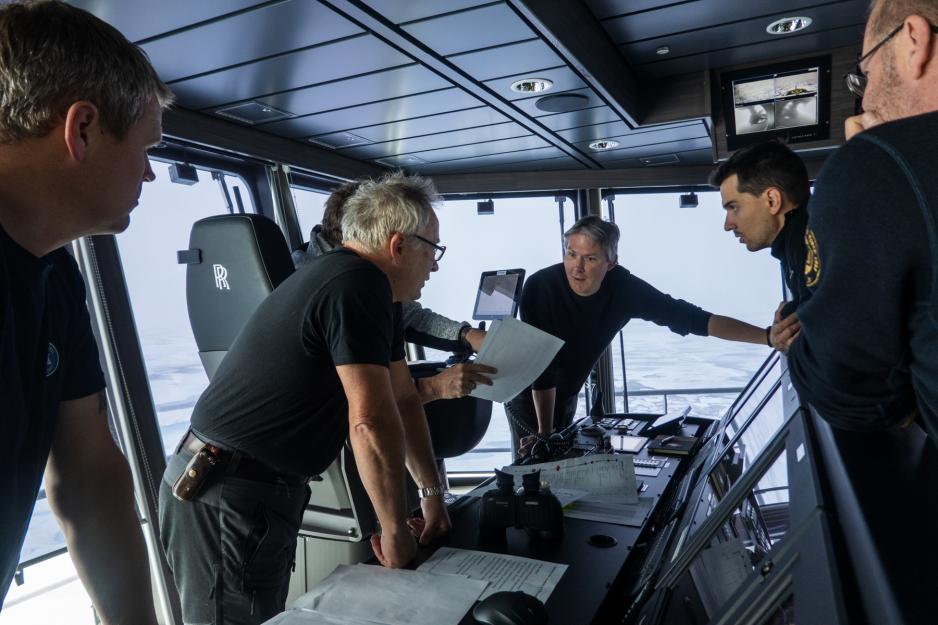Researchers at the Norwegian Polar Institute have recently succeeded in obtaining data from the Amundsen basin throughout all seasons for two consecutive years. “This data set is unique,” says the leader of the Polar Voyage 2024, Paul Dodd.

Two years ago, during the previous polar voyage, the Norwegian Polar Institute and its partners placed measuring instruments in the Amundsen and Nansen basins.
These instruments have now measured the water column, the ecosystem, and ice throughout two years and all four seasons. In addition, sound recorders have registered sounds from the ice, whales, and possible ships in the area.
Ocean researcher Paul Dodd, leader of the Polar Voyage 2024, explains that this data set is unique. Very few expeditions have managed to obtain measurements from the Amundsen basin in the Arctic Ocean in the winter, and even fewer have made recurring observations. The area is hard to reach and inaccessible.
“It is challenging to conduct research here, but we need the knowledge as quickly as possible. The datasets from the rigs are crucial for the polar nation Norway and the international community to care for the ocean in the far north of the globe,” says Dodd.
It will be incredibly exciting to analyze this data!Ocean researcher Paul Dodd, leader of the Polar Voyage 2024.
In other words, the researchers have managed to conduct several types of measurements at the same place in the Amundsen basin over several years. This has never been done before and will provide more accurate results than previously.
The researchers are particularly interested in mapping the Arctic Ocean’s current state, or baseline. Knowing this is important for measuring changes in the area over time.
The researchers also wish to explore the theory that the Nansen basin, located further southeast, is more ‘atlantified’ than the Amundsen basin.
This means that the Arctic Ocean is becoming more like the Atlantic Ocean. The Atlantic water is warmer, and the more it flows into the depths of the Arctic Ocean, the greater the change in surface water warming and contributing to melting sea ice.
The Arctic Ocean could warm up to the extent that Atlantic species could outcompete polar species, which are adapted to cold conditions and often dependent on ice.

The results will be available to everyone
Analyzing the data will take time, but the researchers of the SUDARCO program hope to have completed their analyses by the end of 2026 so that the knowledge will be available and easy to understand for those who need it, primarily Norwegian authorities and other actors who will manage the Arctic Ocean in the future.
The final measuring instruments were placed in the ocean again on August 7th and are scheduled to be retrieved in the summer of 2026.
Financing
The instrument rigs are financed by the EU project Arctic Passion and Fram Center through the SUDARCO program.
The polar expedition is financed by SUDARCO, the Ministry of Climate and the Environment, the Ministry of Foreign Affairs and the Norwegian Polar Institute.


Feeling so grateful today as we celebrate this significant achievement in Arctic Ocean research! It’s inspiring to see how hard work and dedication can lead to such important discoveries. Thank you, researchers, for your invaluable contributions!
Bravo to everyone involved in this significant stride for Arctic research! Your dedication and hard work are shining examples of how we can tackle global challenges together. The future is bright when we unite for science and conservation!
This efforts will undoubtedly lead to a deeper understanding of our planet’s climate and ecosystems. Thank you to all the scientists and researchers dedicated to this vital work!